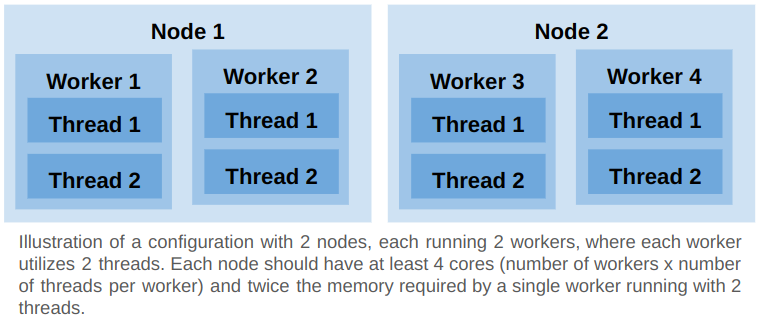This workflow enables running a 3DCS Monte Carlo or contributor analysis job using multiple workers on a SLURM cluster in the cloud. Here’s how to use it:
- Upload your model’s files to a cloud bucket on the platform (see this link).
- Fill in the workflow’s input form.
- Click the execute button.
- For parameter descriptions, hover over the help (?) icon next to each parameter's name.
- The job is divided into sub-jobs based on the selected number of workers.
- Each worker uses the specified number of threads.
- The simulation runs in the resource defined in the simulation executor section of the input form.
- The "max workers per node" parameter sets the maximum number of workers per node.
- To reduce compute costs, estimate the required memory for a single worker and maximize memory utilization by fitting as many workers as possible on a single node.
- Required memory for N workers is N times the memory for a single worker. However, the required memory for N threads is more than N times the memory for a single thread.
- A final job merges the results using the resource defined in the merge executor section of the input form.
- Outputs are stored in the same cloud bucket as the model, under the specified output path.
- Outputs include data generated by each worker, merged results, and metrics like memory and CPU utilization per node, and total 3DCS runtime, including overhead time for loading and processing input files.
- If multiple workers run on a single node, CPU and memory utilization plots will show overlapped usage.
- 3DCS usage is calculated based on the total number of hours a node uses any number of 3DCS workers.
- For example, if 2 nodes run a 3DCS job for 10 hours with 3 workers per node and 4 threads per worker, the usage is 2 nodes x 10 hours = 20 hours.
- To minimize 3DCS license usage, fit as many workers as possible on a single node.
